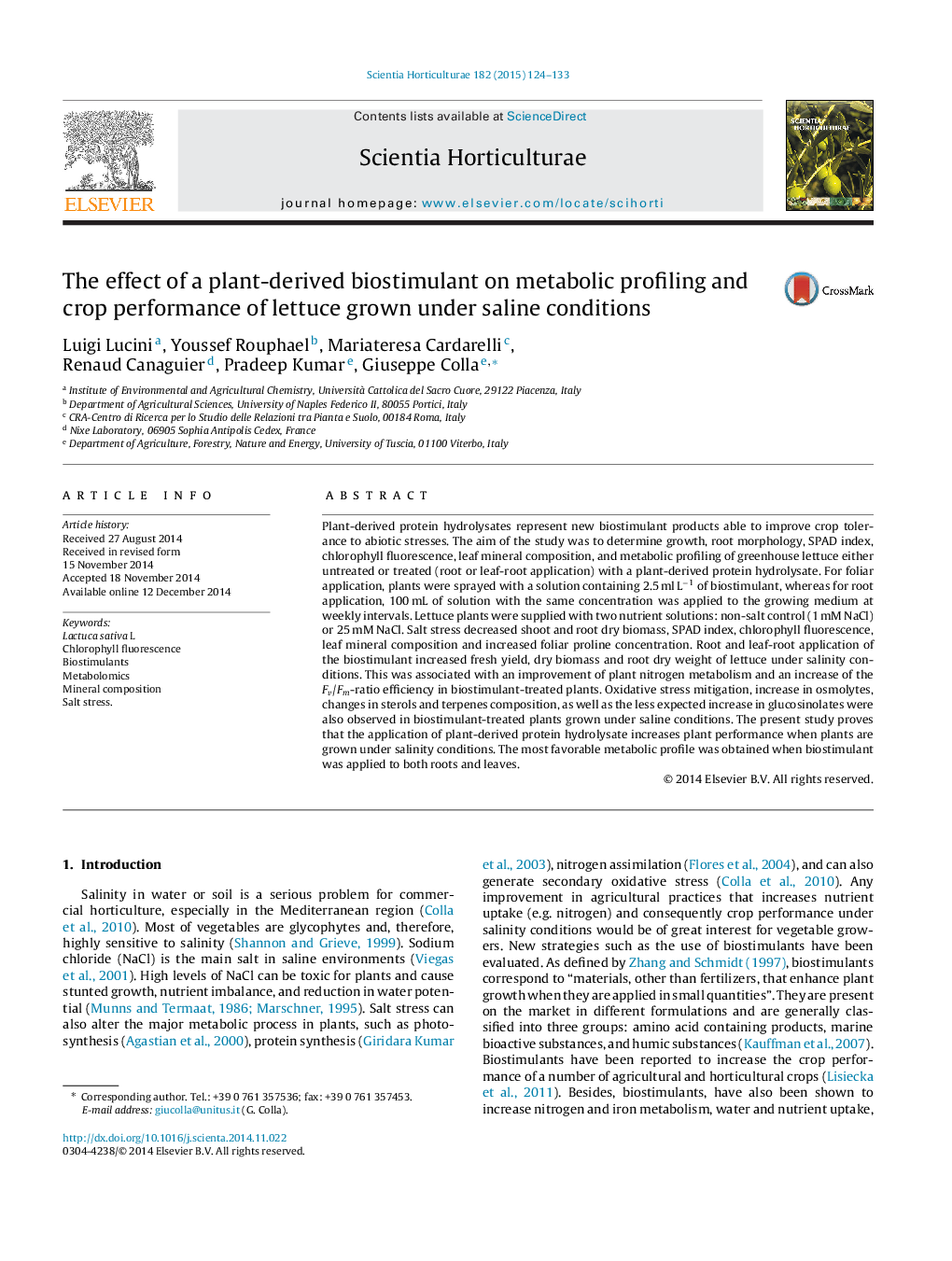| کد مقاله | کد نشریه | سال انتشار | مقاله انگلیسی | نسخه تمام متن |
|---|---|---|---|---|
| 4566451 | 1628816 | 2015 | 10 صفحه PDF | دانلود رایگان |
• Biostimulant effect on metabolic profile of salt-stressed lettuce plants was explored.
• Biostimulant improved crop tolerance to salinity.
• Biostimulant enhanced nitrogen metabolism and Fv/Fm-ratio efficiency.
• Metabolomic analysis revealed significant changes related to biostimulant application.
Plant-derived protein hydrolysates represent new biostimulant products able to improve crop tolerance to abiotic stresses. The aim of the study was to determine growth, root morphology, SPAD index, chlorophyll fluorescence, leaf mineral composition, and metabolic profiling of greenhouse lettuce either untreated or treated (root or leaf-root application) with a plant-derived protein hydrolysate. For foliar application, plants were sprayed with a solution containing 2.5 ml L−1 of biostimulant, whereas for root application, 100 mL of solution with the same concentration was applied to the growing medium at weekly intervals. Lettuce plants were supplied with two nutrient solutions: non-salt control (1 mM NaCl) or 25 mM NaCl. Salt stress decreased shoot and root dry biomass, SPAD index, chlorophyll fluorescence, leaf mineral composition and increased foliar proline concentration. Root and leaf-root application of the biostimulant increased fresh yield, dry biomass and root dry weight of lettuce under salinity conditions. This was associated with an improvement of plant nitrogen metabolism and an increase of the Fv/Fm-ratio efficiency in biostimulant-treated plants. Oxidative stress mitigation, increase in osmolytes, changes in sterols and terpenes composition, as well as the less expected increase in glucosinolates were also observed in biostimulant-treated plants grown under saline conditions. The present study proves that the application of plant-derived protein hydrolysate increases plant performance when plants are grown under salinity conditions. The most favorable metabolic profile was obtained when biostimulant was applied to both roots and leaves.
Figure optionsDownload as PowerPoint slide
Journal: Scientia Horticulturae - Volume 182, 23 January 2015, Pages 124–133
